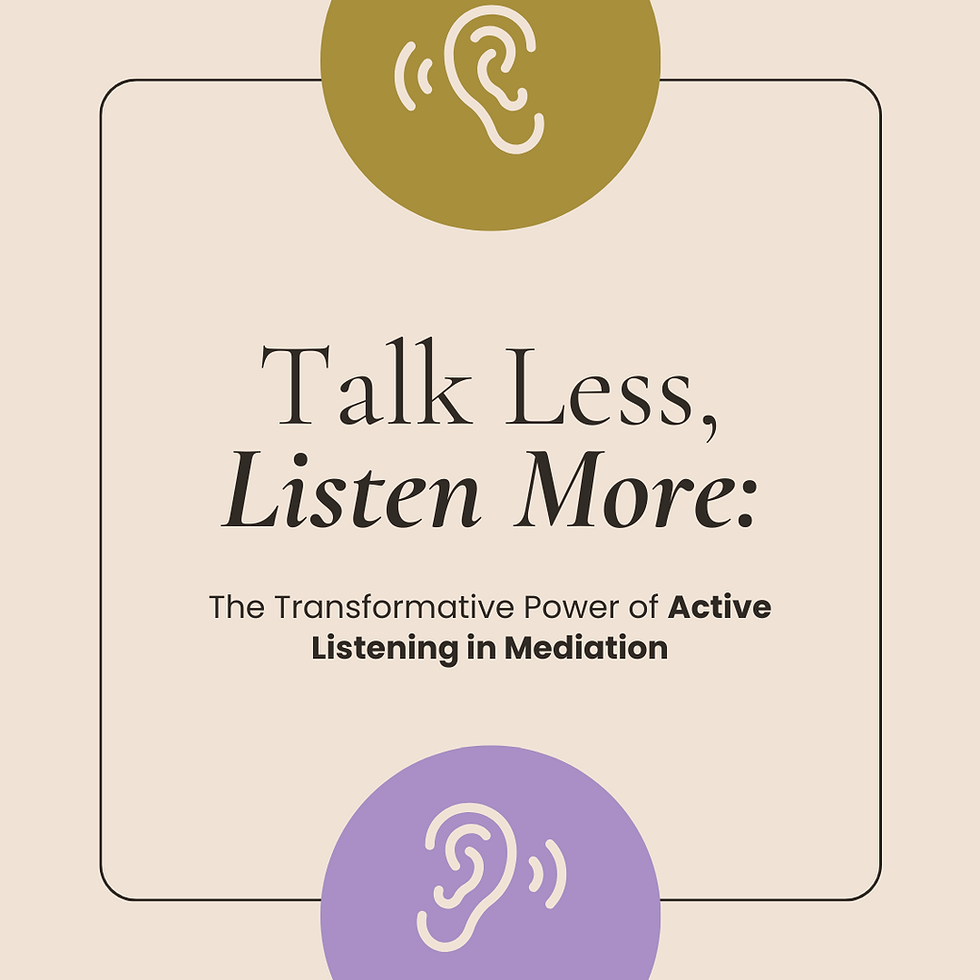Setting the Stage: Why Ground Rules Matter in Family Mediation
- Jana de Waal

- Apr 14, 2025
- 2 min read
When two people walk into a family mediation, they often carry a world of tension with them—unfinished arguments, emotional scars, years of frustration. The atmosphere can feel anything but neutral. That’s why what happens in the first few minutes of mediation is absolutely crucial.
A mediator’s role is to set the tone. And one of the most effective ways to guide that tone is by clearly outlining ground rules.
These aren’t just formalities. Ground rules create structure, establish respect, and give parties a sense of psychological safety. In other words, they help you bring the room closer to that all-important state of equanimity—the calm, steady space where resolution becomes possible.
Why Ground Rules Work
Ground rules are like traffic signs. Without them, everyone’s just guessing who has the right of way—and collisions are inevitable. But with them, communication becomes more respectful and more productive.
In mediation, ground rules:
Reduce interruptions and emotional escalation
Reinforce neutrality
Encourage active listening
Clarify the purpose and limits of the process
Remind participants that mediation is voluntary and confidential
Ground Rules
Here’s a list of clear mediation ground rules parties must follow:
Use respectful language at all times. Avoid insults, accusations, or inflammatory remarks.
Don’t speak over one another. Please take turns. Everyone will have an opportunity to share their thoughts and feelings.
Focus on interests, not blame. Rather than accusing, express what you need and why.
Listen actively. Really try to understand the other person’s perspective, even if you disagree.
What’s said here stays here. Mediation is confidential and without prejudice—it won’t be used against you in court.
Share the air. Make space for both voices to be heard equally.
Look forward, not backward. Let’s focus on building solutions for the future, not just reliving the past.
Take breaks as needed. If you need a pause, just ask. We can also caucus (speak privately) at any time.
The mediator isn’t a secret-keeper. If we caucus, I will share relevant information with the other side unless you specifically ask me not to.
You’re free to leave at any time. Mediation is voluntary, and you’re under no obligation to stay.
You’re also under no pressure to agree. This is a zero-pressure zone. No one will be forced into any decision.
Independent legal advice is your right. If lawyers aren’t present, you’re encouraged to get legal advice before finalizing any agreement.
The Power of Structure
Ground rules give people something to lean on when emotions threaten to take over. They create a shared framework—one that encourages respectful dialogue and discourages power imbalances.
Even in high-conflict mediations, clear ground rules help the parties feel safer, more respected, and more open to engaging in meaningful conversation. In short, they help move the room toward that “just right” zone we’re always aiming for.




Comments